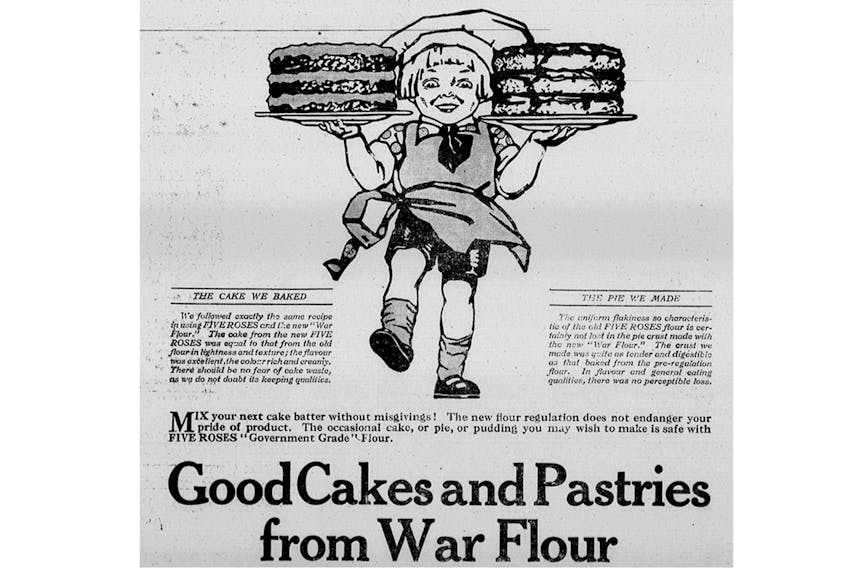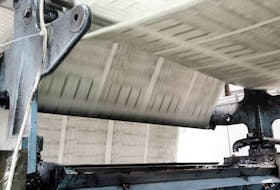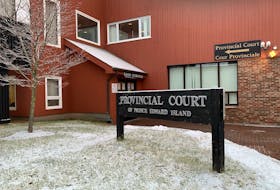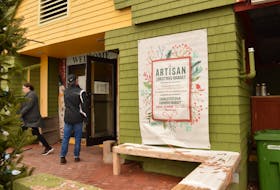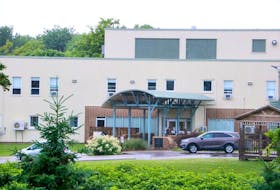On Feb. 13, 1918, The Guardian afforded front-page coverage to a rather extraordinary address by its former editor, J.E.B. McCready. The lecture, presided over by local school principal, J.D. Seaman, attracted “a large attendance” at Charlottetown's Grace Methodist Church to hear McCready expound on his theory that the war represented a fulfilment of the Book of Revelations' apocalyptic prophecies, including some rather tortured calculations to show the Kaiser bearing the satanic number 666.
McCready concluded: “The world can never be the same after this war is ended. The old order of things will be changed; it is now in the crucible and will be burned up. But there is to be a new heaven and a new earth dominated by righteousness.” The speaker was then thanked by George E. Hughes, MLA, for his “learned lecture”. A few days later, The Guardian’s “Weekly Happenings” column noted, “Everybody is talking about Mr. MacCready's lecture ... [he] has set his audience thinking, and many interesting discussions are the result.”
Most prognostications appearing in The Guardian, however, remained of a more pragmatic bent: food production and conservation were particular preoccupations through February. The lead editorial for Feb. 16, for example, was headlined “First Things First,” and proclaimed: “In this province, apart from what we have done and are still doing in giving of our best manhood and of our means, the greatest help we can give now is to add to the food supply.” That same week, Prime Minister Borden summoned the provincial premiers to Ottawa for a special meeting – “in the nature of a Canadian War Conference” – with the coming six months deemed “the most critical period of the war.” As The Guardian reported on Feb. 25, “the subject of outstanding importance considered by the provincial premiers was that of increasing Canada's output of food products and obtaining adequate farm labour.”
In an interesting coincidence, food conservation measures saw the introduction of a new phrase into the Canadian lexicon in February: “war flour”. At the end of January, new Dominion regulations had come into force requiring all large mills to reduce the amount of wheat used in flour production, and The Guardian carried large advertisements from several national mills in the following weeks reassuring consumers that their new government-standard flour would produce satisfactory baking results.
The Guardian had been an enthusiastic supporter of Dominion and provincial government efforts to promote food production and control for some time, but its renewed zeal on the issue in February was possibly sparked by something more than grave pronouncements from Ottawa: another war of words with its rival newspaper, The Patriot. An indignant editorial on Feb. 9 noted that The Patriot had dared to claim that the government was, “not making the slightest attempt to regulate food-buying or selling or stimulate production”. Feb. 11 found The Guardian editorialist countering Patriot claims that local demand for bacon was undiminished, and, on Feb. 16, that the price of bran was too high. The lead editorial for Feb. 23 did not attack The Patriot by name, but remarked: “It is easy to criticize, ... easy to sneer at government control of prices. This is not helpfulness, except to the enemy …”
For The Guardian, however, partial vindication in a far weightier argument was at hand. On Feb. 28, the results of the military voting in the December 1917 federal election were finally announced. The civilian electorate had awarded all four Island seats to the Liberals, to the despair of the The Guardian and other supporters of Sir Robert Borden and his Unionists. The military ballots now shifted two of these seats to Unionist candidates and reduced the Liberal margin of victory in a third riding to a mere three votes. The Guardian was not inclined to magnanimity: the lead editorial for March 1 concerned itself mainly with excoriating Liberal perfidy, especially by The Patriot, but did express some satisfaction that “the brave boys who went forth to defend the country have been the means of removing in part the reproach which party-mad Liberal politicians cast upon our fair province.”
Simon Lloyd is librarian responsible for the P.E.I. collection at the University of Prince Edward Island Robertson Library's University Archives and Special Collections. This is part of a monthly series of lookbacks at the First World War he will be providing, drawing on the historic issues of The Guardian available online at islandnewspapers.ca.

